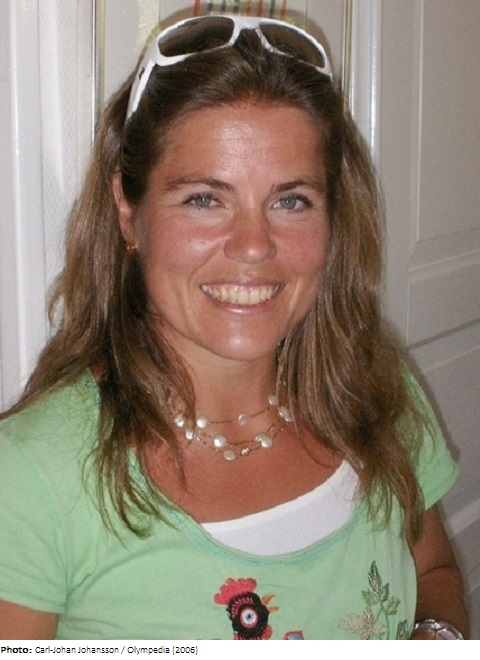Pernilla Wiberg was one of the most successful all-round alpine skiers of the 1990s competing on the World Cup circuit between 1990 and 2002. She was one of only six female skiers to win World Cup races in all five disciplines and took medals in four of them at the Olympics and World Championships. In addition, she was nine times Swedish Champion in various events. Wiberg was most successful in the slalom with 14 World Cup victories. She won the Slalom World Cup once and was runner-up in five years, three times beaten by her Swiss rival Vreni Schneider. Her best season was the winter of 1996-97, in which she participated in every race of the five events, a total of 32. In 24 of them she made the top five including nine victories, five second and four third places. In this season, she accomplished a new record of points achieved in the overall World Cup score winning the overall, slalom and combined World Cups and ranking third, fourth and fifth in the super-G, downhill and giant slalom scores, respectively. In the super-G World Cup she was ahead before she had to drop out of the last race and, thus, gave way to the German Hilde Gerg. She became 1991 World Champion in the giant slalom, in 1996 in the slalom and the combined event, in 1999 again in the combined event and was runner-up in the slalom and in 1997 downhill bronze medalist, giving her a total of four gold medals and one silver and bronze medal each at World Championships. She was similarly successful at the Winter Olympics with gold in the 1992 giant slalom at Albertville, gold in the 1994 combined event at Lillehammer and silver in the 1998 downhill in Nagano. She was flagbearer for Sweden at the Opening Ceremony of the 1994 Winter Olympics.
Pernilla Wiberg was the first Swedish female to become World and Olympic champion in alpine skiing. During her career she suffered various severe injuries, e.g. rupture of the cruciate ligament, meniscal problems and broken ribs, which probably prevented her from winning additional titles and medals. During her active career she underwent a total of 12 knee surgeries. Following her disappointing appearance at Salt Lake City in 2002, she retired from international competition. From 2002-10 she was an Athlete Member of the IOC. In 1991 she received the gold medal of the Svenska-Dagbladet newspaper and in 1991 and 1992 the annual award of the sport section of Sveriges Radio. Also in 1991 she recorded a pop song and music video called “Privilege”, which went to #39 in the Swedish charts.
Wiberg works as a co-commentator for Swedish television and owns a hotel in Idre Fjäll in the Dalarna province. She committed herself to serving peace in the world through sport. She lives in Monaco together with her husband, former Norwegian alpine skier and temporary Sweden’s national coach Bødvar Bjerke, and their two children. Her brother Andreas Wiberg was a former Swedish triathlon champion.

 Sweden
Sweden SWE
SWE SWE
SWE SWE
SWE SWE
SWE SWE
SWE SWE
SWE